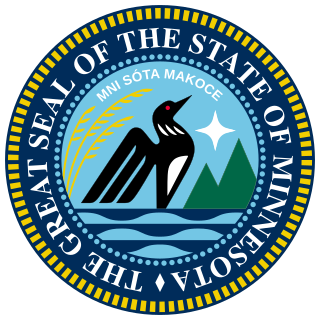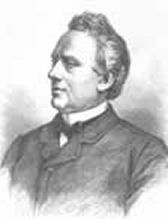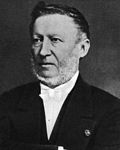
Presidential elections were held in the United States on November 7, 1876. Republican Governor Rutherford B. Hayes of Ohio very narrowly defeated Democrat Governor Samuel J. Tilden of New York. Following President Ulysses S. Grant's decision to retire after his second term, U.S. Representative James G. Blaine emerged as frontrunner for the Republican nomination; however, Blaine was unable to win a majority at the 1876 Republican National Convention, which settled on Hayes as a compromise candidate. The 1876 Democratic National Convention nominated Tilden on the second ballot.

The Minnesota House of Representatives is the lower house of the U.S. state of Minnesota's legislature. It operates in conjunction with the Minnesota Senate, the state's upper house, to craft and pass legislation, which is then subject to approval by the governor of Minnesota.

The 1876 United States House of Representatives elections in South Carolina were held on November 7, 1876, to select five Representatives for two-year terms from the state of South Carolina. Two incumbents were re-elected, one was defeated for re-election, and the Democrats picked up one of the two open seats from the Republicans. The composition of the state delegation after the election was three Republicans and two Democrats.

The 1876 Republican National Convention was a presidential nominating convention held at the Exposition Hall in Cincinnati, Ohio on June 14–16, 1876. President Ulysses S. Grant had considered seeking a third term, but with various scandals, a poor economy and heavy Democratic gains in the House of Representatives that led many Republicans to repudiate him, he declined to run. The convention resulted in the nomination of Governor Rutherford B. Hayes of Ohio for president and Representative William A. Wheeler of New York for vice president.

The 1920 South Carolina United States Senate election was held on November 2, 1920 to select the U.S. Senator from the state of South Carolina. Incumbent Democratic Senator Ellison D. Smith won the Democratic primary and was unopposed in the general election to win another six-year term.
Thames is a former New Zealand electorate, in the Thames-Coromandel District. It existed from 1871 to 1946.

The 1876–77 United States Senate elections were held on various dates in various states, coinciding with Rutherford B. Hayes's narrow election as president. As these U.S. Senate elections were prior to the ratification of the Seventeenth Amendment in 1913, senators were chosen by state legislatures. Senators were elected over a wide range of time throughout 1876 and 1877, and a seat may have been filled months late or remained vacant due to legislative deadlock. In these elections, terms were up for the senators in Class 2.

Full general elections were held in Belgium on 14 October 1894, with run-off elections held on 21 October 1894.
Partial general elections were held in Belgium on 25 May 1902. The result was a victory for the Catholic Party, which won 54 of the 85 seats up for election in the Chamber of Representatives. Voter turnout was 95.7%.

Partial general elections were held in Belgium on 12 June 1866. In the elections for the Chamber of Representatives the result was a victory for the Liberal Party, which won 70 of the 122 seats. Voter turnout was 70%, although only 51,465 people were eligible to vote.

Partial general elections were held in Belgium on 8 June 1880. In the elections for the Chamber of Representatives the result was a victory for the Liberal Party, which won 74 of the 132 seats. Voter turnout was 67.2%, although only 62,936 people were eligible to vote.

Partial general elections were held in Belgium on 8 June 1886. In the elections for the Chamber of Representatives the result was a victory for the Catholic Party, which won 98 of the 138 seats.

Partial general elections were held in Belgium on 14 June 1859. The result was a victory for the Liberal Party, which won 69 of the 116 seats in the Chamber of Representatives and 31 of the 58 seats in the Senate. Voter turnout was 55.9%, although only 49,672 people were eligible to vote.

Partial general elections were held in Belgium on 9 June 1863. The result was a victory for the Liberal Party, which won 59 of the 116 seats in the Chamber of Representatives and 33 of the 58 seats in the Senate. Voter turnout was 74.5%, although only 52,519 people were eligible to vote.

Partial general elections were held in Belgium on 9 June 1874. The result was a victory for the Catholic Party, which won 68 of the 124 seats in the Chamber of Representatives and 34 of the 62 seats in the Senate. Voter turnout was 64.1%, although only 52,074 people were eligible to vote.

Partial general elections were held in Belgium on 11 June, 18 June and 15 July 1878. The result was a victory for the Liberal Party, which won 72 of the 132 seats in the Chamber of Representatives and 36 of the 66 seats in the Senate. Voter turnout was 62.5%, although only 56,640 people were eligible to vote.

Partial general elections were held in Belgium on 13 June 1882. The result was a victory for the Liberal Party, which won 79 of the 138 seats in the Chamber of Representatives and 37 of the 69 seats in the Senate. Voter turnout was 75.1%, although only 55,517 people were eligible to vote.

Legislative elections were held in Belgium in June and July 1884, for partial Chamber and full Senate elections respectively. Voter turnout was 79.1% in the Chamber of Representatives elections, although only 69,276 people were eligible to vote.
Partial general elections were held in Belgium on Tuesday 13 June 1837 in which 51 of the 102 seats in the Chamber of Representatives were elected. Voter turnout was 56.0%, although only 24,526 people were eligible to vote. Under the alternating system, Chamber elections were only held in five out of the nine provinces: Antwerp, Brabant, Luxembourg, Namur and West Flanders. The Senate was not up for election.

General elections were held in Sweden in 1875 to elect the Second Chamber of the Riksdag for a three-year term. Following the elections, the Lantmanna Party remained the largest party, holding 92 of the 198 seats.
















